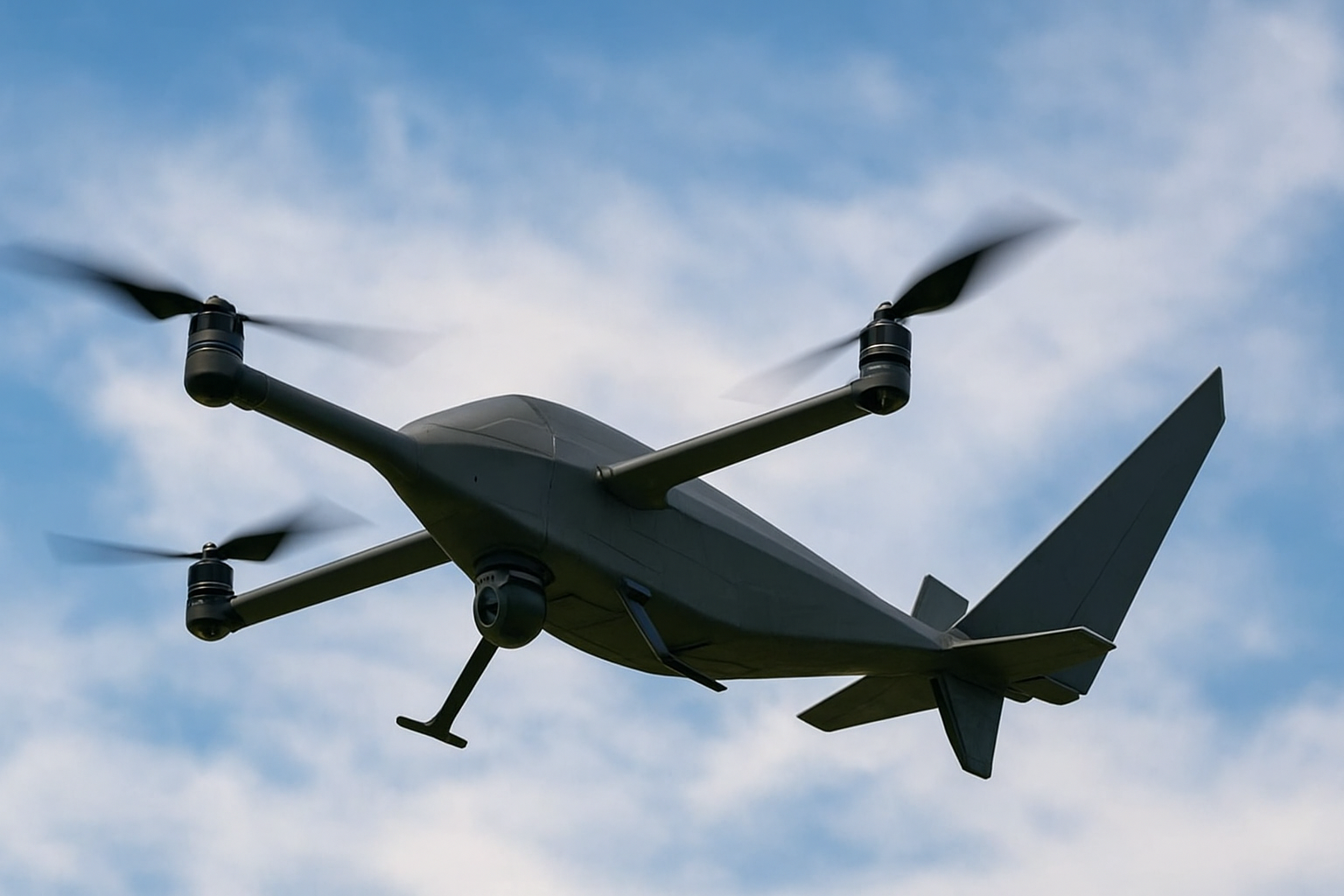A new transcontinental alliance between the United States and the United Arab Emirates is reshaping the future of military innovation. A U.S. defense technology company and the UAE’s state-owned EDGE Group have announced a joint venture to develop “Omen” — an AI-powered autonomous drone platform — from a newly established research facility in Abu Dhabi. The initiative marks one of the most ambitious efforts yet to integrate advanced artificial intelligence and robotics into next-generation defense capabilities.
Strategic Shift in Global Defense Technology
The partnership, reported by The Economic Times (AFP), represents a strategic alignment between Washington and Abu Dhabi at a time when defense spending and AI development are converging globally. The “Omen” drone, designed for autonomous surveillance, tactical response, and battlefield adaptability, embodies a broader shift toward AI-driven military modernization — a market projected by MarketsandMarkets to reach $38 billion by 2030, up from $14 billion in 2024.
For the UAE, the deal underscores its growing ambition to emerge as a regional technology hub for defense and autonomous systems, following major investments in AI research centers, satellite programs, and aerospace engineering. For the U.S., it signals deepening cooperation in a high-stakes domain amid tightening export controls and the global race for defense AI dominance.
Why This Matters for Investors
Investors are watching closely as AI, robotics, and defense spending converge into one of the fastest-growing sectors of the decade. U.S. defense budgets for fiscal 2025 already include over $1.8 billion for AI integration and autonomy programs, according to the U.S. Department of Defense. Meanwhile, Middle Eastern sovereign funds — including Mubadala and ADQ — are directing billions toward AI startups and dual-use technologies with both civilian and defense applications.
Companies across the AI hardware, sensor, and autonomous systems ecosystem are poised to benefit. Major defense primes like Lockheed Martin ($LMT), Northrop Grumman ($NOC), and Raytheon Technologies ($RTX) have all expanded R&D in autonomous systems. Simultaneously, AI chipmakers such as NVIDIA ($NVDA) and AMD ($AMD) are becoming indirect beneficiaries as defense systems demand increasingly advanced computing architectures.
“The line between defense and deep tech has blurred,” said an analyst from Morningstar Defense Insights. “Whoever dominates AI-enabled autonomy will control the next frontier of military deterrence — and investors are positioning accordingly.”
Technology Transfer and Geopolitical Balancing
However, the deal also highlights rising geopolitical complexity in technology transfer. U.S. defense exports face strict compliance under International Traffic in Arms Regulations (ITAR), and joint AI ventures can trigger scrutiny over data sovereignty, dual-use software, and machine-learning applications. The partnership’s success may depend on how both nations navigate regulatory and strategic boundaries while ensuring that AI remains aligned with ethical and operational safety standards.
The UAE, through EDGE, has already partnered with leading Western firms on drone and missile programs. This latest initiative further cements its status as a frontline innovator in AI defense research — potentially transforming the Gulf’s industrial landscape and diversifying its energy-dependent economy.
Future Trends to Watch
- Autonomous Defense Ecosystem Expansion: Expect rapid growth in supporting technologies such as AI navigation systems, advanced sensor fusion, and real-time battlefield analytics.
- AI and Edge Computing Integration: The move toward onboard AI decision-making will increase demand for low-latency chips and AI accelerators.
- Private-Sector Collaboration: Beyond government contracts, private partnerships will shape how AI autonomy enters surveillance, logistics, and border security.
- Defense Tech IPOs and SPACs: Venture capital inflows into defense-tech startups are accelerating, with analysts forecasting $10 billion+ in funding rounds by 2026 (PitchBook, 2025).
Key Investment Insight
For investors, the joint venture serves as a barometer of where defense and technology capital are headed. Companies at the intersection of AI-hardware, robotics, and defense procurement could see sustained growth momentum, particularly those aligned with government-approved export partners. The sector remains capital-intensive but strategically resilient, often insulated from consumer market volatility.
Those looking to gain exposure may consider aerospace ETFs, AI robotics funds, or defense innovation portfolios that include both established defense contractors and emerging AI firms. However, regulatory and geopolitical risks must be factored in — as export controls, sanctions, and alliance politics will increasingly shape market valuations.
Stay Ahead
As defense innovation and AI acceleration redefine the global tech landscape, investors must stay informed on how cross-border partnerships, regulatory shifts, and AI autonomy breakthroughs reshape both risk and opportunity.
For daily investor insights, analysis, and emerging market trends — stay connected with MoneyNews.Today, your trusted source for smart market intelligence.





